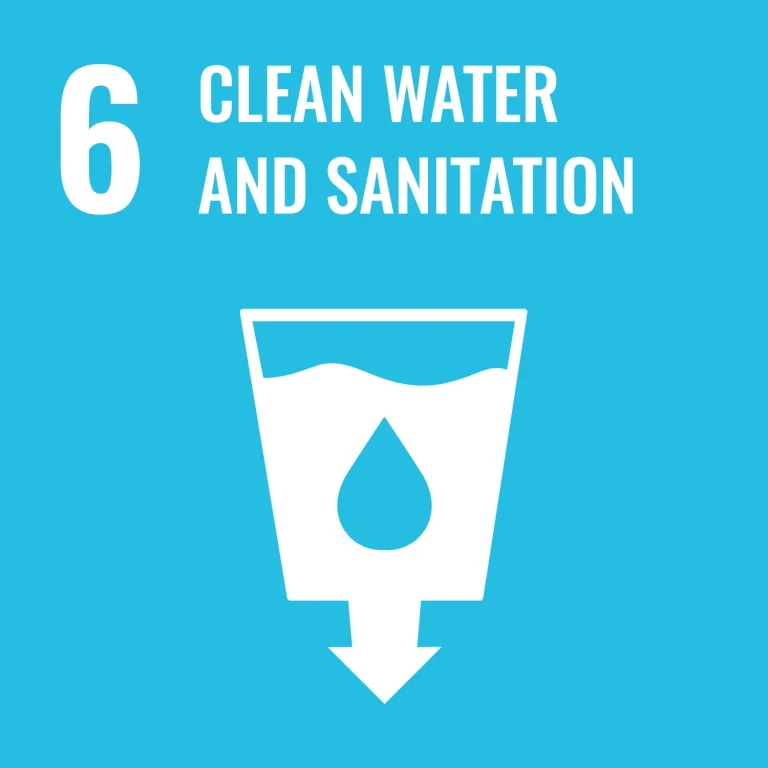
Add Your Heading Text Here

















Charter for the Prevention and Handling of Complaints of Sexual Harassment and Persecution
February 2022
1. Objective
Sexual harassment and persecution infringe on the dignity, choices and privacy of men and women, and on gender equality. Acts of sexual harassment constitute criminal acts, disciplinary offenses and civil torts.
Sexual harassment and persecution harm the employment and academic relationships, constitute a disciplinary offense under this Charter and the disciplinary regulations that are practiced in the University, and are contrary to the University’s policy. The objective of this Charter is, accordingly, to reflect the University’s policy and ensure that the University of Haifa serves as a safe and respecting workplace and study environment, in which there is no sexual harassment or persecution in the context of proceedings related to making a sexual harassment complaint.
In order to ensure a suitable workplace and study environment, it has been decided to establish clear rules regarding intimate relationship within the framework of a relationship of authority (including between faculty members and students) even when it is not sexual harassment within the meaning of the law, as specified in Appendix B to the Charter.
It is clarified that in any case of conflict between the provisions of this Charter and the provisions of law, the provisions of law shall prevail.
2. Definitions
“University” | The University of Haifa |
“Law” | The Prevention of Sexual Harassment Law, 5758 – 1998; The Prevention of Sexual Harassment Regulations (Employer Duties), 5758 – 1998; The Equal Opportunity in Employment Law, 5748 – 1998. |
“Sexual Harassment” | As defined in Section 3 (a) of the Prevention of Sexual Harassment Law and as defined in Section 7 of the Equal Opportunity in Employment Law, as has been revised and changed from time to time, by an employee or student towards an employee or student (as such are defined below), as part of the workplace or studies. |
Without derogating from the above, in accordance with and/or in addition to the provisions of law, sexual harassment is one of the following: (1) Extortion to commit an act of a sexual nature; (2) An indecent act; (3) Repeated proposals of a sexual nature, despite the recipient of the proposals having expressed a lack of interest in them; there is no need to show non-consent in the following cases: (a) Exploitation of authority in employment, service or studies; (b) Exploitation of a relationship of power, dependence, education or treatment of a minor or helpless person; (c) Exploitation of a patient’s dependency on a therapist; (4) Repetitive references that focus on the recipient’s sexuality, even though the recipient of the references has shown a lack of interest in them; there is no need to show non-consent in the cases specified in paragraph (3) above; (5) Demeaning or humiliating reference to a person’s sexuality or sexual orientation, whether or not he/she or she has shown that it bothers him/her or her; (6) Publication of a photograph, video or recording of a person, focusing on his/her sexuality, in circumstances where the publication may humiliate or demean the person, and his/her consent to the publication has not been given. For the purposes of this definition – “Lack of interest” or “lack of consent”- in words or by conduct; “Reference”- in writing, orally, through a visual or auditory presentation, including through a computer or computer material, or by conduct. | |
“Persecution” | As defined in Section 3 (b) of the Prevention of Sexual Harassment Law, as revised and changed from time to time, by an employee or a student towards an employee or student, within the framework of the workplace or studies. Without derogating from the above, in accordance with the provisions of the law, prohibited persecution is any harm to an employee or student that results from sexual harassment or from a complaint of such harassment or a complaint of persecution, or |
any harm to the person who assisted or testified in favour of the complainants in such a complaint. | |
“At the workplace or as part of studies” | The University, including its facilities and/or any other place where activities are conducted on behalf of the University (including the student dormitories), by the University, for the University, or anyone on its behalf, and/or any other place while working or studying, and/or while exploiting a relationship of authority at work or in studies anywhere. |
“Relationship of authority” | A relationship between a person in a position of authority, control or influence and another person who is subordinate, including an administrative or academic authority relationship. Authority, control or influence can be either direct or indirect. |
“Victim” | Means an employee, student or person who claims to have or appears to have been a victim of sexual harassment and/or persecution at the workplace and/or as part of studies. |
“Complainant” | A victim and/or other person who makes the complaint of sexual harassment and/or persecution at the workplace and/or as part of studies. |
“Respondent” | The person who on the day of the incident and on the day the complaint was made is an employee or student and against whom a complaint was made of sexual harassment and/or persecution of an employee and/or student. |
“Commissioner” | The person who has been appointed as commissioner for the prevention of sexual harassment, as set forth in Section 5 below and within the meaning of the term “responsible” in Section 9(A1)3 of the Prevention of Sexual Harassment Regulations. |
“Deputy Commissioner” | A person who have been appointed as deputy commissioner for the prevention of sexual harassment, as set forth in Section 5 below. |
“Attendant” | A person who has been appointed by the commissioner and/or a deputy commissioner for the academic and administrative support of a victim who made a complaint of sexual harassment as set forth in Section 6.9 below. |
“Employee” | A person for whom on the day of the event an employee-employer relationship existed with the University, including a senior academic staff member, a junior academic staff member, an administrative staff member, a temporary employee, an |
occasional employee, a permanent employee, an employee under a personal contract, as well as anyone who acts on behalf of the University and in its name as part of its activities, and for the purposes of this Charter only – including a provider of service to the University or an employee of a provider of service to the University. | |
“Student” | Whoever, on the day of the event, is one of the following: – A person who has enrolled for studies in University and was accepted by it as a student, including in the division for special programs, from the time of enrolment and as long as he/she is registered as a student, including during school holidays. – A person who has applied to be accepted as a student and his/her |
“Retiree” | application was rejected, from the time of his/her application until the receipt of the rejection notice. – A person who has finished his/her studies but has not yet received a diploma. A person who on the day of the event is an employee who has retired from his/her work at the University. |
“Volunteer” | A person who on the day of the event performs activities for the University free of charge and without there existing any working relationship between him/her and the University. |
“The Competent Body” | The body that is authorised to make the decision on the matter the respondent of sexual harassment or persecution according to his/her affiliation, as follows: – Rector – regarding a respondent who is a senior or junior member of the academic staff. – Vice President and General Director – regarding a respondent |
“The Disciplinary Regulations” | who is an employee other than senior or junior member of the academic staff. – Dean of Students – regarding a respondent who is a student. The Charter for the Prevention and Treatment of Sexual Harassment and Persecution Complaints that are applicable in the University. |
“Special Tribunal” | A special disciplinary tribunal for sexual harassment and persecution matters, as set forth in Section 15 below. |
“Prosecutor” | Whoever was appointed as a prosecutor in matters of sexual harassment and persecution, as set forth in Section 13 below. |
3. Disciplinary Offenses
Sexual harassment and/or persecution are serious disciplinary offenses.
4. Sanctions
- Disciplinary offenses under this Charter carry with them the sanctions listed below, in whole or in part, for a fixed period or indefinitely, as the case may be, and they may be suspended:
- Requiring that the respondent make an apology to the victim or to any other party to be determined;
- Requiring that the respondent undergo training in the prevention of sexual harassment, including at his/her own expense;
- Written warning;
- Written reprimand;
- Distancing the respondent from the victim, including by transfer of position and/or termination of studies;
- Disqualification from holding academic or administrative positions;
- Withholding promotion;
- Demotion;
- Cancellation of rights or benefits;
- Suspension with or without payment of wages and related rights and benefits or a part thereof;
- Dismissals with or without payment of severance pay or a part thereof;
- Providing any other relief that is correct and just in the circumstances of the
- The competent body has the authority to impose a sanction of requiring the respondent to make an apology and/or requiring that the respondent undergo training in the prevention of sexual harassment, including at his/her own expense, and/or give the respondent a written warning and/or reprimand and/or distance the respondent from the victim.
- The Special Tribunal has the power to impose any or all of the sanctions listed above according to the severity of the offense.
- For each sanction that is imposed, the Rector, or the Vice President and General Director, as the case may be, shall give notice to the relevant university body.
5. Appointment of the commissioner
- The University President and Vice President and General Director will appoint a commissioner from among the academic staff, and deputy commissionerד from the administrative and academic staff, for a term of three years, with the possibility of extension for an additional term of office not exceeding three years.
- The commissioner will be a full-time professor at the University or professor emeritus who will hear complaints against members of the academic staff and students, except in exceptional cases.
Preference will be given to members of senior academic staff in the position of full professor.
If possible, a woman will be appointed to the position of commissioner.
- The deputy commissioner from among the administrative staff will be a member of the administrative staff in a senior position who will hear complaints against employees of the administrative staff, except in exceptional cases.
- The commissioner and the deputy commissioners shall be independent in their
- The commissioner and the deputy commissioners will be suitable for the fulfilment of the position in terms of skills, experience, professional status and human relations, as well as in terms of knowledge of the law and the provisions of the regulations and the disciplinary procedures applicable at the University.
- The commissioner and the deputy commissioners will undergo training that will deal with, among other things, the nature of the position, knowledge of the law, methods of prevention and handling complaints, to an extent that will not be less than the scope prescribed by the law, as amended from time to time.
6. The duties of the commissioner and the deputy commissioners
- Provide advice, information and training on the prevention and treatment of sexual harassment and persecution at the University.
- Act to increase awareness of the significance and harm of the phenomena of sexual harassment and persecution.
- Receive complaints and reports of sexual harassment or
- Conduct inquiries in cases of sexual harassment or persecution, as required by law and in accordance with the provisions of the disciplinary regulations.
- Recommend, if necessary, interim relief to the competent body, as specified in Section 11 below, including during the period in which the complaint is investigated and until a final decision on the complaint is made by the competent body.
- Forward to the competent body the summary of the investigation, accompanied by its reasoned recommendations regarding further treatment.
- Refer the victim, if necessary, for medical, emotional or other aid, or recommend this to him/her, as appropriate in the case.
- Accompany the victim during the investigation of the complaint and, if necessary, after the implementation of the decision of the competent body and/or the Special Tribunal and in connection thereto.
- Appoint, at its discretion, an “attendant” on behalf of the University to the victim who made a complaint of sexual harassment for the purpose of accompanying the victim in appropriate cases. The “attendant” will operate in coordination with the commissioner and/or the deputy commissioners for providing academic and administrative support to the victim in his/her dealings with the relevant factors. The “attendant” will undergo appropriate training and all the provisions of Section 19, regarding confidentiality, will apply to him/her.
- Assist the prosecutor in the disciplinary procedures, as necessary, including in the preparation of the case and the transfer of the complaint and its appendices, the response of the respondent, records prepared by the commissioner and/or deputy commissioners during the investigation, and details of any interim relief that was given, all in accordance with the prosecutor’s instructions
- Frequently and continuously participate in advanced training and instruction related to the field of activity of the commissioner and the deputy commissioners.
- Submit reports on the activities of the commissioner and the deputy commissioners regarding the matters handled by him/her, as specified in Section 20.
- Take any further action he/she deems appropriate, taking into account the request of the competent body, for the purpose of fulfilling his/her duties in accordance with the
7. Possible courses of action for the victim
In the case of sexual harassment or of persecution against a background of sexual harassment, there are several options from which the victim can choose, all of them or part of them, together or one after the other:
- Make a complaint of sexual harassment at the University, to the commissioner or to a deputy commissioner.
- Bring a claim to a labour court or civil court, as appropriate, against the harasser, the persecutor and the employer.
- Make a complaint with the police, with the aim of instigating criminal
8. Reporting obligations
- The heads of academic and administrative units, and employees in management positions, are responsible for reporting without delay to the commissioner or a deputy commissioner every case in which they have been informed of a suspicion of sexual harassment or persecution, and to extend to the commissioner or the deputy any assistance required in handling the information. If the victim requested that no such report be made, then a report is to be made without disclosing the identity of the
- An employee or student who suspects that sexual harassment or persecution is occurring within the University’s activities, is to immediately report this to the commissioner or a In the event that the victim requested that no such report be made, then a report is to be made without disclosing the identity of the victim.
- Reports of suspected sexual harassment or persecution by a supplier, subcontractor or any visitor, within the workplace or studies, will be forwarded to the commissioner or a deputy commissioner. The University will handle such reports with the supplier or subcontractor or visitor in accordance with the law and in accordance with the agreement between the parties.
9. Procedure for investigating a complaint at the University:
9.1. Making a complaint or a report to the commissioner
9.1.1. Complaints or reports of suspected sexual harassment or persecution at the University will be directed to the commissioner or a deputy commissioner.
9.1.2 A complaint can be made orally or in If a complaint is made orally, its contents will be recorded by the commissioner or the deputy commissioner. The complainant will be asked to sign the record to confirm its contents, and will receive a copy of the signed record from the commissioner or the deputy commissioner.
The records of the commissioner and the deputy commissioners are confidential and internal and will not be passed on to anyone other than the competent body as part of the process of handling the complaint.
9.1.3 When the University and/or the commissioner or a deputy commissioner receives knowledge of a case of sexual harassment or persecution in the context of an employment or educational relationship, with no complaint being made, or with a complaint being made but subsequently withdrawn by the complainant, the matter will be referred for investigation by the commissioner and the deputy commissioners. The commissioner and the deputy commissioners will conduct an investigation of the matter, if possible, according to the rules specified below, and if the complainant withdrew the complaint, then the commissioner deputy commissioners will investigate the reasons for the withdrawal of the complaint.
9.2. Investigation of the complaint
- When the commissioner or deputy commissioner have been notified of a suspicion of sexual harassment or persecution or have received a complaint of sexual harassment or persecution, they will initiate an investigation into the complaint.
- The commissioner and/or the deputy commissioners shall inform the victim of the stages of the investigation of the complaint, of his/her rights, and of the possible courses of action before him/her in accordance with the law.
- The commissioner or the deputy commissioner will notify the competent body of the complaint and of the start of the investigation.
- During the investigation of the complaint, the respondent will be summoned by the commissioner or deputy commissioner in order to clarify the methods and stages of investigating the complaint, The commissioner or deputy commissioner will present the details of the complaint to the respondent and will ask for a response.
When a complaint is made by a complainant who is not the victim, the victim will be notified, if possible, prior to the respondent being summoned for the investigation.
- For the purpose of investigating the complaint, the commissioner or deputy commissioners may summon any employee or student to provide information and/or document regarding or that may be relevant to the complaint. The commissioner or deputy commissioners will seek the assistance of the head of the human resources division and/or the academic secretary, as relevant, in order to complete the investigation as required, if such assistance is necessary.
Failure to provide assistance to the commissioner or deputy commissioner will be considered a disciplinary offense, unless done in accordance with the law.
- In order to investigate the complaint, the commissioner and the deputy commissioners will be entitled to receive aid from elements such as a psychologist, a social worker, and the legal counsel of the University.
- The commissioner and the deputy commissioners will conduct the investigation within reasonable time, efficiently and continuously until its completion, so as to prevent further harm to the victim and to prevent a miscarriage of justice law.
- The investigation procedures will be documented by the commissioner and/or the deputy commissioners.
- The investigation of the complaint will be done with the maximum protection of the dignity and the privacy of the victim, the complainant, the respondent and other witnesses. The commissioner will, furthermore, not disclose information that he/she received during the investigation of the complaint, unless this is necessary in order to complete the investigation or it is required by law.
- The commissioner and the deputy commissioners will offer to the respondent and the victim, in appropriate cases, the option of receiving initial psychological assistance within the university or within another framework, at their The commissioner and the deputy commissioners will also take steps to provide academic / administrative support to the victim, if necessary.
- The commissioner and the deputy commissioners will also handle an anonymous complaint or report of sexual harassment and/or persecution as far as possible in the manner stated above and with the necessary changes, even if the victim does not intend to make a complaint.
- The commissioner and the deputy commissioners will act in an impartial and neutral manner.
- The commissioner and the deputy commissioners will not handle a report / complaint if they are the respondent or if they have a personal connection with the parties involved in it. In such a case, the commissioner or deputy commissioners shall report the matter to the competent body and the complaint will be referred to a substitute who will be appointed for this purpose by the competent In this case, the complaint will be dealt with in accordance with the rules set forth in this Charter, with the necessary changes.
9.3. Recommendations by the commissioners and deputy commissioners
- Upon completion of the investigation, the commissioner and the deputy commissioners will submit to the competent body a written summary of the investigation of the complaint, accompanied by reasoned recommendations regarding how it is to be further handled.
- If the respondent is an employee of a manpower contractor assigned to actually provide services at the University, then the commissioner and the deputy commissioners will forward their summary and recommendations to the contractor as well.
- Where necessary, the commissioner and the deputy commissioners are authorised to recommend to the competent body, including while the complaint is still being investigated, interim measures that on the one hand will provide protection to the victim and on the other hand will ensure as much as possible that employment and/or study relationships are not harmed, or in order to prevent any hinderance of the investigation of the complaint. These measures also include safeguarding academic rights such as changing a supervisor, extending a degree completion date, replacing a test with a work assignment, extending a thesis submission deadline, exemption from attendance, personal instruction in lieu of a course, psychological / emotional / medical aid, temporary transfer of the respondent to another unit, and any other interim relief appropriate to the case.
- If the commissioner or deputy commissioner believe that the complaint or report is false and that it was no made in good faith, then they may recommend disciplinary action against the complainant, which will be handled pursuant to the relevant disciplinary regulations. The relevant information on which the recommendation was based is to be attached to the recommendation of the commissioner or the deputy commissioner.
10. The decision of the competent body
- The decision of the competent body will be made after reviewing and assessing the summary and recommendations of the commissioner or deputy It will be made without delay and within seven work days from the day it received the summary and recommendations of the commissioner or deputy commissioner.
- The decision of the competent body shall be the exercising of its powers in one or more of the following ways:
- In the case where the commissioner or deputy commissioner recommended a disciplinary procedure due to the severity of the conduct, the competent body has the authority to transfer the complaint for handling by the prosecutor, for the purpose of initiating disciplinary procedures in the special disciplinary tribunal for matters of sexual harassment and persecution.
- For cases that are not as in Section 10.2.1, the competent body has the authority to take disciplinary action against the respondent (all or part of it) in accordance with the circumstances of the offense and its nature, after the respondent has been given an opportunity to present his/her arguments against such intention, as follows:
- A written reprimand, recorded in the personal file of the respondent, a copy of which will be sent to the relevant workers’
- A written notice, recorded in the personal file of the respondent, a copy of it will be sent to the relevant workers’ organization.
- Give instructions to those involved in the case in order to prevent the recurrence of the case or to rectify the harm caused to the complainant due to the harassment and/or persecution, including regarding proper rules of conduct in employment and/or studies, distancing the respondent from the victim, instructions to the persons in the relevant positions to take steps in matters of work and/or studies, providing guidance and information about sexual harassment to the unit involved.
- Refer the respondent to training in the prevention of sexual
- Refer the victim to psychological
- Reject the complaint, if the competent body believes that the complaint does not amount to sexual harassment or persecution or inappropriate conduct.
- If the respondent is an employee of a manpower company who is in practice employed at the employer, then the competent body will make the decision after consulting the manpower company that employs the employee.
- The competent body will notify the victim, the complainant, the respondent, and the commissioner or the deputy commissioner, in a reasoned written statement: of its final decision; interim decisions; a decision to refer the matter to be handled by another commissioner due to a conflict of interest or personal connection.
If the victim, the complainant and/or the respondent request to review the summary and recommendations of the commissioner or the deputy commissioner, then the opportunity to review these documents will be granted.
- Decisions regarding complaints of sexual harassment will be filed with the commissioner, and in the personal file of an employee who is a member of the administrative and academic staff, or in the student’s personal file (as the case may be).
- A decision by the competent body to reject the recommendation by the commissioner or the deputy commissioner to instigate disciplinary procedures, and a decision to dismiss the complaint, may be appealed by the complainant and/or the victim to the President, within 15 days from the date of the decision.
- The competent body will be responsible for the implementation of the decision and/or the interim decision, including giving instructions to employees, managers and to the commissioner or the deputy commissioners for the purpose of their It is clarified that these decisions are binding and non-implementation of the instructions of the competent body amounts to a disciplinary offense, unless this is done in accordance with the law.
11. Interim relief
- The competent body, during the investigation of the complaint, will protect the victim from harm to matters of work or study that is a result of making a complaint and/or from other harm in the workplace or studies that may disrupt the investigation of the
- Decisions regarding intermediate measures will be made by the competent body and it is its responsibility to ensure their implementation.
- The competent body shall do as much as possible, in the circumstances of the case and in consultation with the commissioner or the deputy commissioners, to prevent harm to the victim due to the implementation of the interim relief.
- If a disciplinary procedure be initiated, then the power to order interim relief will vest with the tribunal. Any decision made by a competent body in the matter of interim relief before the commencement of the disciplinary procedures will continue to be in force until otherwise decided by the tribunal.
12. The victim’s rights and status in the proceedings
- The victim is entitled to receive information on his/her rights within the investigation and the disciplinary procedure and also on the expected stages of the disciplinary procedure or any other procedure related to the complaint.
- The victim is entitled to receive information regarding the investigation of the complaint and the disciplinary procedure.
- The victim is entitled to the protection of his/her dignity and his/her privacy when the investigation of the complaint and the disciplinary procedure are being held.
- The victim is entitled to be accompanied by a person of their choice during the investigation by the commissioner or the deputy commissioners and during the disciplinary procedure.
- The victim is entitled to protection from the respondent or anyone acting on his/her behalf, to the extent possible and as needed.
- The victim may apply to the commissioner or a deputy the commissioner for interim relief, including the distancing of the respondent. The decision will be made by the competent body.
- The victim may review the disciplinary complaint, if one is made, and be present in the disciplinary hearings of his/her case before the Special Tribunal.
- If cancellation of the procedure, compromise with the complainant, etc., are being considered, then the victim is entitled to express his/her position before any of these are implemented.
- If necessary, and as the case may be, the victim is entitled to participation in the funding of legal counsel, with this being in the event that he/she is required to testify before the disciplinary tribunal and/or in the event that his/her position is requested on a plea bargain, settlement, etc., with the respondent
- If necessary, and as appropriate, the victim is entitled to receive psychological, emotional or medical support and counselling, within or outside the University, funded by the University.
13. Appointment of the prosecutor
The prosecutor will be an external professional lawyer who is not a part of the University community, and will be appointed once every three years by the University’s President and Vice President and General Director, with the possibility of extension the term of appointment by an additional term of two years.
14. Duties and powers of the prosecutor
- The prosecutor in the disciplinary procedures will update the victim regarding the charges contained in the disciplinary indictment, before it is submitted by the prosecutor on behalf of the University to the tribunal.
- The prosecutor will submit an indictment to the tribunal, within a reasonable time from the decision of the competent body to instigate disciplinary procedures, that will include the details of the disciplinary offense committed and the relevant facts, the requested sanction, the documents and witnesses that the prosecutor intends to present or have testify at the hearing.
A copy of the indictment will be sent to the respondent, as well as to the President, the Rector, the Vice President and General Director, and the dean of the faculty to which the respondent belongs, as the case may be.
- In order to conduct the prosecution, the prosecutor can summon any employee or student to provide information and/or a document that pertains to or may relate to the If necessary, he/she will be assisted by the head of the human resources division and/or the academic secretary, as applicable, for the purpose of completing the investigation as required.
- The prosecutor will update the victim directly or through the commissioner or deputy commissioner, of the stages for holding the disciplinary procedures, and will allow the victim to express a position before a decision is made to close the case, or to agree to a plea bargain, or to commence proceedings to reach a settlement.
- The prosecutor will consult with the President, the Rector, the Vice President, and General Director, and the legal counsel of the University, as necessary.
15. The disciplinary procedure at the University:
- Establishment of a special disciplinary tribunal in matters of sexual harassment and persecution
- A special disciplinary tribunal will be established in matters of sexual harassment and persecution. A claim against a respondent in these matters will be brought before the tribunal. The judgment of the tribunal shall be subject to a right of appeal to the tribunal of appeals.
- The President of the University will appoint a retired judge to serve as head of the tribunal, and he/she will also appoint a judge to serve as head of the tribunal of appeals. If possible, a woman shall be appointed to each of these positions. The appointment will be for a term of three years and can be extended for an additional term of two years.
- The Special Tribunal shall have exclusive jurisdiction to hear disciplinary procedures in respect of acts of sexual harassment or The special tribunal will be empowered to hear alongside the charges of sexual harassment or persecution also other disciplinary offenses arising from those acts.
- Members of the Special Tribunal are as listed below in Section 15.2. The appointment of the members of the tribunal will be for a term of three years, and can be extended for an additional term of two years.
15.2. Composition of the Special Tribunal
- The special tribunal will sit in a panel of three members, consisting of the head of the tribunal, or head of the tribunal of appeals, as the case may be, and two additional members from the following lists of members of the tribunal:
- Academic staff members list: 10 members who are not part of the University’s senior academic staff, and who were nominated by the senior staff organization, and 10 members who are not part of the University’s junior academic staff, and who were nominated by the junior staff organization.
- Students’ association list: 10 members who are not students at the University and do not give paid services to the University or to the students’ association, who were nominated by the student
- Administrative staff list: 10 members who are not employees in the University’s administrative staff and do not hold a position in the trade unions that are signatories to collective agreements that apply to university staff, who were nominated by the administrative staff committee.
Each such list shall have equal representation of both sexes.
If no such lists have been provided, in whole or in part, or lists contain a number of members that is lower than those set in Sections 15.2.1.1 – 15.2.1.3, the University will take steps to locate members until the quota set for each list is filled, subject to the provisions of the above Sections regarding the identity of the listed members.
- The head of the special tribunal shall determine the additional members of the panel at the beginning of each proceeding, at his/her choice and discretion, while giving appropriate representation to each of the sectors to which the victim and the respondent belong (senior academic staff / junior academic staff / administrative staff / students).
- In each panel there will be at least one member of each
- Members of the special tribunal will participate in advanced training, including advanced training by electronic means, which will deal with the essence of the duties, knowledge of the Prevention of Sexual Harassment Law, methods of prevention and how to handle complaints.
15.3. The proceedings in the tribunal
- The proceedings in the tribunal will be held within a reasonable time, efficiently and continuously until its completion, so as to prevent any further harm to the victim and to prevent a miscarriage of justice.
- The hearing in the tribunal will be held in camera.
- As part of the hearing at the tribunal, the respondent may be assisted by an advocate of his/her The tribunal may approve legal representation by an external lawyer for the respondent.
- The tribunal is authorized to grant interim relief for the period of the procedure
- The procedure in the tribunal will be conducted by way of presenting evidence and interrogating witnesses, while the rules of procedure and the manner of presenting the evidence and hearing testimony will be determined by the head of the tribunal in a way that seems just and effective.
- The tribunal may summon witnesses and officers to testify, as it deems fit under the circumstances of the case.
- If the victim is summoned to testify in the disciplinary tribunal at the request of the respondent, then this may only be with the victim’s consent. In the absence of such consent, it will not be possible to oblige the victim to testify and the tribunal will examine other alternatives to giving such testimony.
- In special cases, for reasons to be recorded, the tribunal is authorized to order that the hearing of the victim’s testimony be done without the presence of the respondent in the courtroom, provided that the respondent will be able to follow the delivery of the testimony from another room.
- If the victim does give testimony at his/her own request, then the University will participate in the reasonable expenses of his/her representation by a lawyer for the purpose of giving this testimony, subject to the University’s prior approval in writing.
- At the end of the hearing of the evidence, the prosecutor and the respondent will give oral summaries of their arguments.
15.4. The tribunal’s judgment
- The tribunal will pass down a reasoned judgment, reached by majority opinion of most of the members of the panel, within thirty days from the date of the last hearing of the evidence.
- If the tribunal finds the respondent guilty of the offenses in the indictment, in whole or in part, it will set a date for arguments for the sanction.
- The tribunal shall deliver the sentence, out of the sentences listed in Section 4, in whole or in part, within 7 days from the date of the arguments for the
- If a plea bargain has been made, whether with regard to the offenses attributed to the respondent or with regard to the sanction or to the offences and the sanction, the tribunal will only reject the plea bargain in exceptional cases, for reasons to be recorded, and only if it had afforded the prosecutor, the victim and the respondent the right to have their arguments heard before it ruled to reject the plea bargain.
- If an appeal has been made, or notice has been given of an intention to file an appeal, the judgment of the tribunal will be delayed pending a ruling on the appeal or a different decision by the tribunal of appeals.
15.5. The tribunal of appeals
- Appeals on the tribunal’s judgments, including rulings given therein regarding the maintaining of confidentiality, will be heard by the tribunal of appeals.
- The notice of appeal shall be brought to the tribunal of appeals within thirty days of judgment being passed down by the tribunal. If no appeal is made within the said period of time, the judgment of the tribunal shall become final and conclusive.
- The hearing in the tribunal of appeals will be held behind closed
- The tribunal of appeals may accept or deny the appeal as well as give any ruling that is within the jurisdiction of the tribunal.
16. Publication of decisions and judgments:
- A decision of the competent body will be published on the commission’s website within fourteen days of the date on which it was made.
- A final and conclusive judgment of the tribunal will be published on the commissioner’s website within fourteen days of the date on which the judgment became final and conclusive in accordance with Section 15.5.2 above.
- A judgment of the tribunal of appeals shall be published within thirty days from the date of the judgment.
- The publication of such decisions and judgments will be with the redaction of details that may enable the victim to be identified. Prior to publication, the competent body or the Special Tribunal, as the case may be, will contact the victim in writing, to ascertain his/her position regarding the inclusion of his/her name and details as part of the publication of the decision or judgment.
- The competent body or the special tribunal, as relevant, may decide that the decision or judgment, or parts from them, including the identity of the respondent, are
The President, the Rector, the Vice President and General Director may apply to the Special Tribunal which decided on the confidentiality of the judgment in accordance with this sub-section, within thirty days of the date of the decision, with a special application to cancel the decision of confidentiality, and they may do so even after thirty days from the date of the decision if the special application was made due to a change in the circumstances. The decision regarding confidentiality may only be revoked after having afforded the opportunity to the respondent, the victim, and anyone who that may be harmed by the publication, to present their arguments on the matter.
17. Guidance and education activities:
- Every student and every new employee of the administrative and academic staff will receive guidance on the Prevention of Sexual Harassment Regulations, and will sign having received the regulations on the date of induction and/or admission to
- The University shall ensure that, at least once a year, guidance and training activities are conducted, including through courseware, for the prevention of sexual harassment. The studies will include reference to academic staff, administrative staff, and students, and will be in Hebrew, English, Arabic, and/or any other language required by law. The courseware will detail the ways in which the commissioner operates and the manner in which the victims and the respondents are notified.
- The commissioner is responsible for initiating training, education and guidance activities, including seminars and the dissemination of information on sexual harassment, including the sexual harassment prevention courseware and the
- The Charter for the Prevention of Sexual Harassment and the commissioner’s reports will appear on the commission’s website.
- The commissioner will ensure that at least once a year this Charter is distributed by the University also to employees of service companies.
- Prominent banners detailing the names of the commissioners and the deputy commissioners will be placed in the main buildings.
18. Violation of the obligation to participate in training:
- Employees must participate in sexual harassment prevention training and complete a sexual harassment prevention courseware.
- The failure, three times, to participate in a sexual harassment prevention training that was set by the commissioner for an employee, or failure to complete within three months a sexual harassment prevention courseware that the employee was requested to complete, constitutes a disciplinary offense.
- The report of a disciplinary offense under this Section shall be submitted to the tribunal by the head of the human resources department at the University or by the commissioner, and the hearing shall be held before the head of the tribunal, sitting as a sole judge.
- The head of the tribunal will be authorized to impose disciplinary sanctions on such an employee, at his/her discretion.
19. Maintaining confidentiality, privacy and the right to due process
- The University will respect the privacy of the victims and the respondents, and their right to due process, as far as possible and taking into account the requirements of the law and the need to protect the interests that this Charter aims to promote, including the University’s duty to investigate cases of sexual harassment and persecution, the duty to take action against offending parties, the duty to protect victims of sexual harassment and/or persecution, the duty to use collective and preventive measures in order to eradicate the phenomenon of sexual harassment.
- The records of the commissioner and the deputy commissioners as too the documents prepared during the investigation of the complaint are confidential and will not be passed on to any parties other than the parties who require the material by virtue of their duties, and subject to the provisions of the law as they will from time to time be valid and binding on the University. The commissioner’s and deputy commissioners’ summary and recommendations will be made available for the review of the victim and the respondent, at their request, in accordance with the law.
20. Reporting and saving archival material
- A report detailing the various actions taken by the University to prevent sexual harassment in its area and information regarding the number of complaints submitted to the commissioner in that year and how they were handled, will be prepared by the coordinating commissioner once a year, after collecting and coordinating data, all in accordance with the law.
- The aforesaid report shall be submitted by the commissioner to the Authority for the Advancement of Women in the Prime Minister’s Office, to the Committee for the Advancement of Women and Gender Equality in the Knesset and to the Council for Higher Education, as required by law, as well as to the Vice President and General Director of the University, and it shall be published on the commission’s website.
- The investigation material held by the commissioner shall be kept in the same manner as judgments of the disciplinary tribunals are kept.
21. Support for the commission’s activities
- The University will provide the commission with a dedicated budget, computer assistance, assistance in means for training and publishing, and administrative
22. Approval, effect and revision of the regulations
- This Charter enter into effect on the day it is approved by the senate and it supersedes any earlier procedure or regulations pertaining to sexual harassment or persecution. Requests for amendments and/or updates to the Charter will be submitted for deliberation and approval by the senate at the request of the President or the commissioner after they have been drafted by the senate constitution committee.
- To the extent that there is a conflict between the provisions of this Charter and the provisions of other regulations at the University, the provisions of this Charter shall
- This Charter comes to add to the provisions of the law and the regulations and not to derogate from them.
- All the provisions of this Charter shall apply, respectively, and in accordance with the law, also to a volunteer and to a retiree.
- The commissioner and the head of the human resources division may issue, with the approval of the Vice President and General Director, procedures for the implementation of the provisions of this Charter, and revise them from time to time, provided that they do not conflict with what is stated in this Revisions to the procedure will be reported to the senate once every two years.
23. Responsibility
- The competent body – as specified in this
- Human resources division – issuance of letters of appointment of the commissioner and the deputy commissioners, issuance of letters of appointment to the members of the tribunal, budget management, aid and assistance to the commissioner and the
- Dean of students – training and guidance for pupils /
- The commissioner and deputy commissioners – handling complaints, training and guidance for employees.
24. Appendices
- Appendix A – Contact details
- Appendix B – Prohibition of intimate relationships under a relationship of authority
- Appendix C – Regulations translated into English
- Appendix D – Regulations translated into Arabic
In any case of ambiguity in the translated regulations, the regulations in their Hebrew wording will prevail.
Appendix A: Contact Details of the Commission
Contact can be made via e-mail or directly to one of the commissioners.
In accordance with the provisions this Charter, the University has appointed Prof. Anat Derech Zehavi as Commissioner for the Prevention of Sexual Harassment and Persecution at the University.
Contact details of Prof. Anat Derech Zehavi:
Mobile number: 054-5349080 Email: anatdz@research.haifa.ac.il
In accordance with the provisions of this Charter, the University has appointed Ms Miri Budniuk as Deputy Commissioner for the Prevention of Sexual Harassment and Persecution at the University.
Contact details of Ms Miri Budniuk:
Office telephone number: 04-8240694 Mobile number: 054-3933096
Email: mailto:mdavid@univ.haifa.ac.il
In accordance with the provisions of this Charter, the University has appointed Ms Meirav Ayalon as Deputy Commissioner for the Prevention of Sexual Harassment and Persecution at the University.
Contact details of Ms Meirav Ayalon:
Office telephone number: 04-8240027 Mobile number: 054-3213951
Email: dmerave@univ.haifa.ac.il
In accordance with the provisions of this Charter, the University has appointed Ms Sarah Laiani as Deputy Commissioner for the Prevention of Sexual Harassment and Persecution at the University.
Contact details of Ms Sarah Laiani:
Office telephone number: 04-8240603 Mobile number: 052-5637460
Email: nsarah@univ.haifa.ac.il
Appendix B: Rules Regarding the Prohibition of Intimate Relationships Under a Relationship of Authority at the University of Haifa
- An intimate, consensual relationship between adults is the private matter of those involved. However, there is a prohibition on having an intimate relationship (including wooing), even if by consent, whether the relationship is ongoing or temporary, between those who have a relationship of academic and/or administrative authority and
This prohibition stems from the fact that such a relationship constitutes a conflict of interest that jeopardizes the academic and research process, creates an inappropriate study atmosphere and/or work environment, and is even likely to constitute abuse of a relationship of authority causing harm to the weaker party. Furthermore, this prohibition also stems from the recognition that in a relationship of authority there is a significant concern that the intimate relationship is not being conducted with genuine consent.
- Thus, a person in authority should avoid any intimate relationship with his/her subordinate as long as there exists a relationship of authority between Accordingly, the person in authority will be held responsible for conducting such a relationship, including from the disciplinary aspect.
- If an intimate relationship has developed despite the aforesaid, then the person of authority must immediately report this to the academic or administrative body to which he/she is subject, in order that it may act to end the relationship of authority between them, while ensuring the prevention of any harm to the subordinate person.
- Once this has been brought to the attention of the above-mentioned academic / administrative body (as the case may be), he/she will immediately report it to the commissioner for the prevention of sexual All factors involved in the matter will cooperate in order to end the relationship of authority, while taking into consideration the subordinate’s needs and in coordination with him/her.
- For the avoidance of doubt, it is clarified that the person of authority must also avoid cases in which there is a relationship of authority between him/her and those with whom he/she had an intimate relationship in the past, and he/she must immediately report such an occurrence to the academic / administrative body, as provided in Section 3 of this appendix.
- The heads of academic and administrative units, and employees in management positions who have learned of a violation of the above provisions must report to the commissioner for the prevention of sexual harassment. It is clarified that this Section does not infringe on their duty to report as provided for in Section 8 of this Charter.
- In order to ensure an appropriate work and study environment, the University calls on every student and an employee to report information regarding this type of relationship to the commissioner for the prevention of sexual harassment.
- Violation of the provisions of Sections 2, 3, 4, 5, and 6 of this Appendix constitutes a serious disciplinary offense.
- The provisions of this section do not apply to married or common law spouses who are both employed at the University in accordance with the procedure for employing relatives at the University, as will be in effect from time to time.

